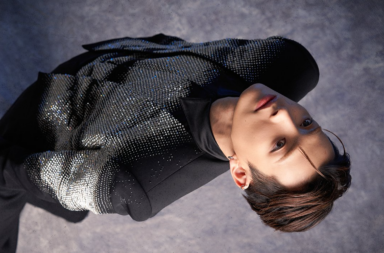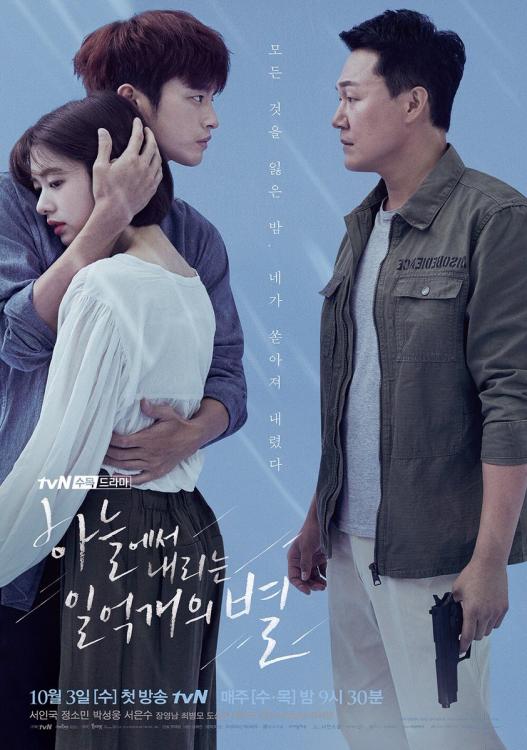
Is there such a thing as fate? Can a person truly change? Is a son destined to repeat the sins of his father? The tvN mystery drama The Smile Has Left Your Eyes attempts to answer these questions and more in 16 gripping, emotional and well-acted episodes. This show might seem on the surface like a romance, but it delves deeper into a journey of discovery between two individuals and the secrets of their shared trauma. Exploring a tragic backstory and its psychological ramifications could easily feel melodramatic and cheap. However, the topic of trauma and how it affects both adults and children is handled with nuance, with flawed but engaging characters who prove to be much more than they initially seem.
Please note that this review contains spoilers from the drama.
The Smile Has Left Your Eyes centers around Yoo Jin-kang (Jung So-min), her protective police detective brother Yoo Jin-kook (Park Sung-woon), and their shared mysterious connection with an enigmatic young man named Kim Moo-young (Seo In-guk). Jin-kang is an orphan who was raised by her elder brother who is much older than her. Although she learns in middle school that she is not biologically related to her brother, she cannot bring herself to press him for more information. So despite her cheerful appearance, she remains haunted by a past she knows little able and deals with feelings of both immense gratefulness as well as guilt and shame.
Through her best friend, stereotypical “poor little rich girl” Baek Seung-a (Seo Eun-su), she meets Moo-young, a handsome but heartless man who plays emotional games with people for sport. While investigating the recent murder of a female university student, officer Jin-kook realizes Moo-young is a suspect for the brutal crime. Jin-kook sees beyond Moo-young’s charming exterior and becomes obsessed with exposed him as a monster while keeping him away from his sister. Meanwhile, Jin-kang grows closer to Moo-young as she finds out he is an orphan like herself, except that he was raised in an orphanage. She begins to peel back his tough exterior, revealing his capacity for love.
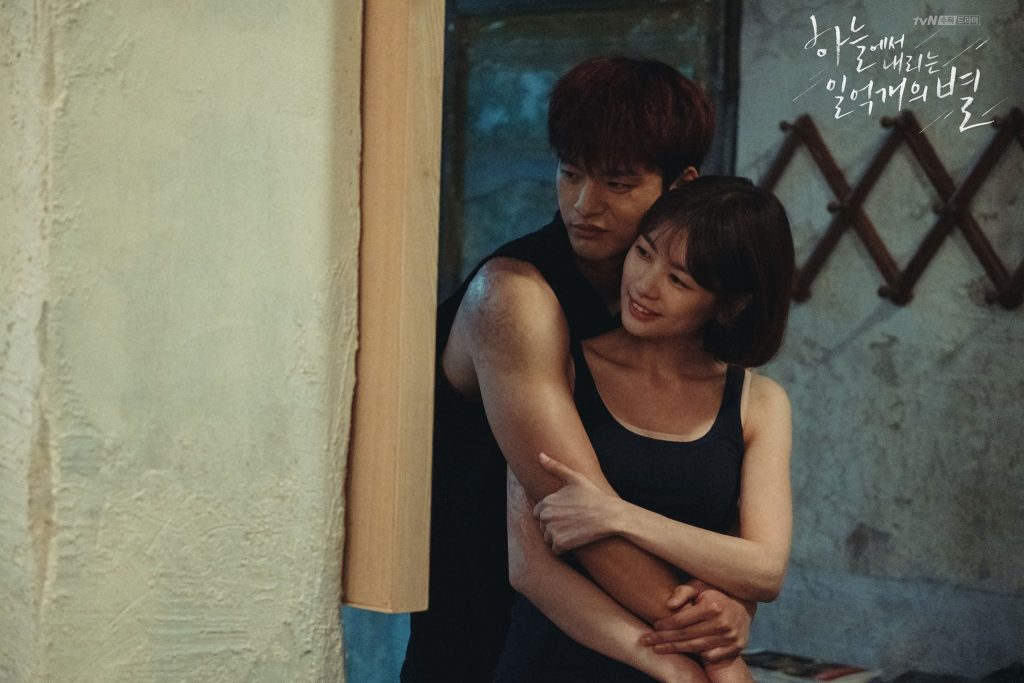
The Smile Has Left Your Eyes is a remake of a 2002 Japanese series, Hundred Million Stars From the Sky. Thankfully, the Korean adaptation changed a controversial element from the original plot. In the Japanese version, the young lovers are revealed to be siblings who had been separated as children. Paid cable channel tvN could have probably gotten away with such a plot point, but the altered Korean ending gives the characters a sweet, Shakespearean bond without verging into the troubling or taboo. They are instead made to be childhood companions torn apart after Moo-young’s father murdered Jin-kang’s parents, and Jin-kook in turn shot Moo-young’s father upon arriving at the scene of crime. This twist meant viewers could focus more on the couple’s joy of reuniting with each other despite life’s cruel circumstances, without having to taint the many pure moments shared between the couple.
The drama’s story slowly builds to hook viewers and then keeps them on their toes up until the very last tragic moments of the finale. Breadcrumbs are left in the beginning of the series that do not make sense until much later. But when the connections to Dr. Yang Kyung-mo (Yoo Jae-myung) or Jin-kook’s temple visits are revealed, it becomes immensely satisfying.
One of the most effective ways the show builds tension is in the score. A thriller relies on music to help ramp up tension, with the series also using music to misdirect and fool the audience. A sweet interaction with fairy tale-like music between Seung-ah and Moo-young often appears, but then ominous music kicks in immediately after, making viewers question everything that just happened. With just a clever change of music, Moo-young’s soft smile can suddenly look more like a sinister smirk, and viewers are left wondering if he is truly a devil in disguise. This theme of psychological games and alternate sides to an individual is also played out in the introductory sequence which flips and repeats character’s faces in ways that look like kaleidoscopic Rorschach tests.
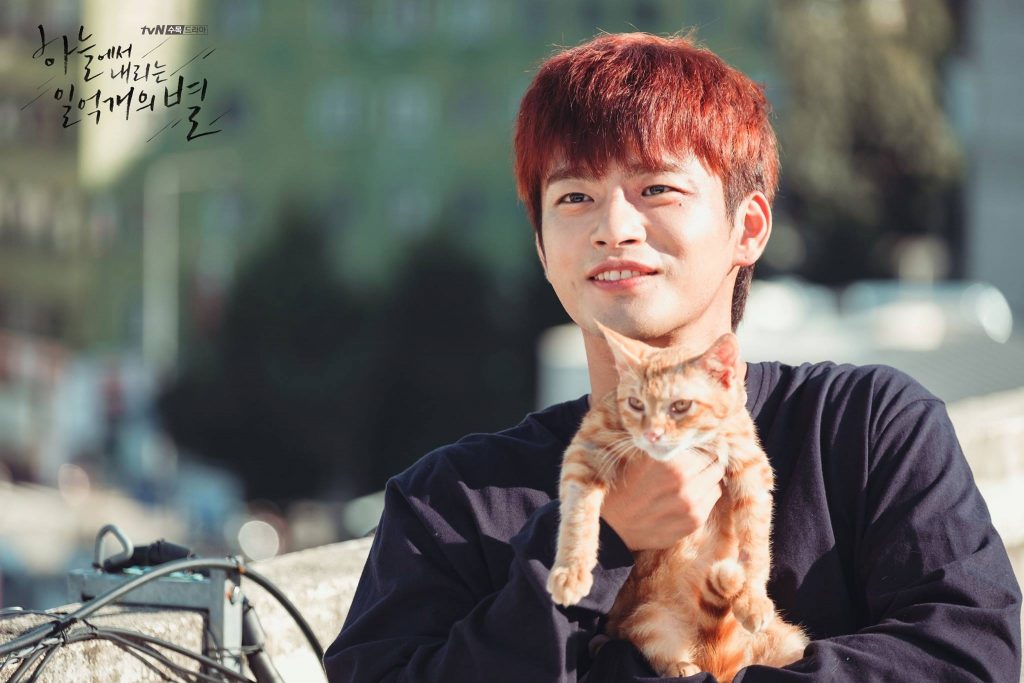
As Moo-young is the central figure in the story’s complex web, the drama hinges on the acting abilities of star Seo In-guk. This drama marks his return to acting following his brief military enlistment, which controversially ended with exemption for a medical condition. The singer turned actor has played roles ranging from youthful and boyish high schoolers to cold and suave profilers and executives. Seo In-guk draws upon his wide range of characters, even sometimes incorporating multiple facets within the same scene as Moo-young often uses a cruel and calculating demeanor to mask some of his childlike sensitivities. Seo In-guk’s facial expressions, especially in the eyes, are key in a drama that calls attention to them in its title. His ability to switch from warm to emotionless in a split second cannot be praised enough.
Director Yoo Je-won also wisely and artfully lets Seo In-guk’s performance speak for itself. Throughout the drama, there are many long stretches without dialogue where Moo-young’s emotional turmoil heartbreakingly play out on his face, speaking far more than words could. For example, in episode 13, there is a seven-minute stretch in which Moo-young recovers memories while exploring his childhood home. Seo In-guk only says a couple of lines in that entire span. Park Sung-woon and Jung So-min have the same ability to command an entire scene with their facial expressions. Jun-kook’s desperation is made obvious when his normally jovial face becomes stone cold. Jin-kang choking back sobs at her friend’s funeral feels achingly real, and her wailing for Moo-young to open the door after he tries to break up with her is heartbreaking to watch.
While the show does retread some typical tropes, such as the love of a good woman saving a violent man, the show makes many beautiful points about its themes of destiny, fate, and the ability for a person to change. The times people keep information from each other, refuse to communicate, or not air out secrets is when people get hurt. In episode 14, Dr. Yang explains some of the show’s main takeaways. He tells Moo-young:
“Your past doesn’t define you. The present, right now, is what makes you you. … Rage will only hurt yourself. You’ll inflict wounds on yourself and it will only hurt those you love.”
This proves true as every time someone acts on a grievance with violence, there are tragic consequences, whereas being emotionally vulnerable leads to redemption. Jin-kook reiterates this point by telling Im Yoo-ri (Go Min-si) that “a person can always start over.” While Yoo-ri is able to do so thanks to his guidance, Jin-kook doesn’t heed his own advice, torturing himself with guilt and his grudge against Moo-young, while also refusing to extend the same grace to Moo-young.
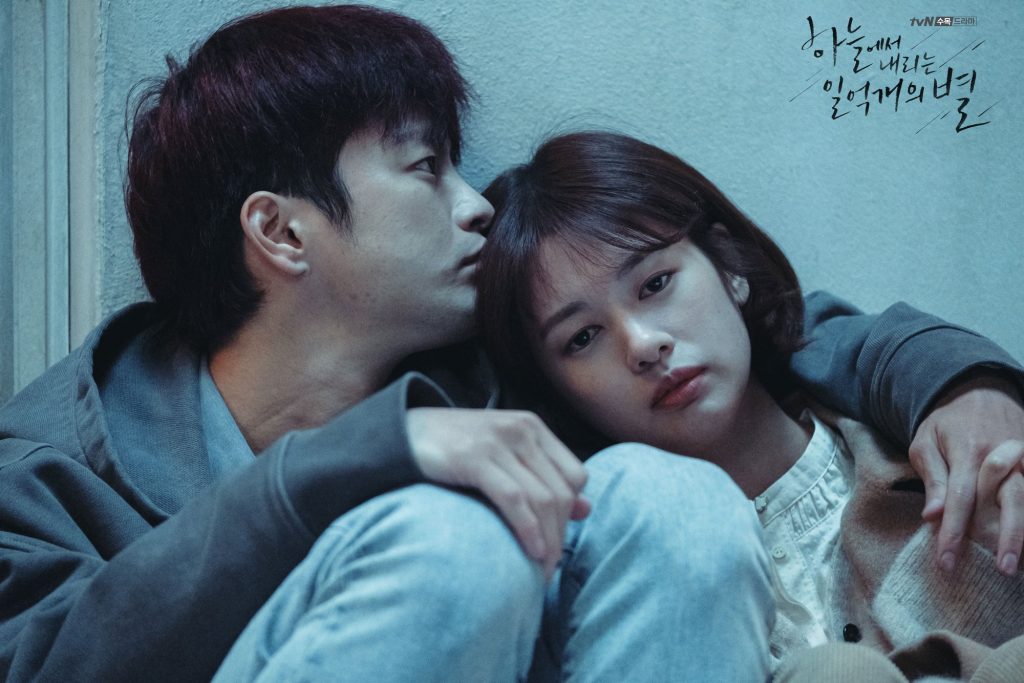
The show also deserves attention for its sensitive handling of mental illness and trauma. While the show does present extreme cases as far as characters’ experiences, it generally sticks within the realm of fact. Yoo-ri, suffered from depression, insomnia, and blackouts in her memory, and Moo-young appears to have repressed memories and some type of antisocial personality disorder, the official mental health term that includes what we commonly refer to as psychopaths and sociopaths.
The series positively shows that the best way to understand where someone who is mentally distressed is coming from is to listen without judgment. Characters are able to connect with each other and use their relationships to heal from past trauma by finding understanding and support. While Yoo-ri and Moo-young fall under the stereotype of people with ASPD turning violent, they are also accurately depicted as still able to form deep emotional bonds and attachments with select people.
Unfortunately a few major plot points get dropped or left unresolved along the way. In the first half of the show, the mystery of the student’s murder is of crucial importance. While Yoo-ri does ultimately confess, Moo-young’s involvement as an accomplice who inspired and aided her in the bloody crime fails to have any lasting repercussions. He never faces legal charges nor does he face any guilt or psychological ramifications, especially after becoming a “good person” thanks to Jin-kang.
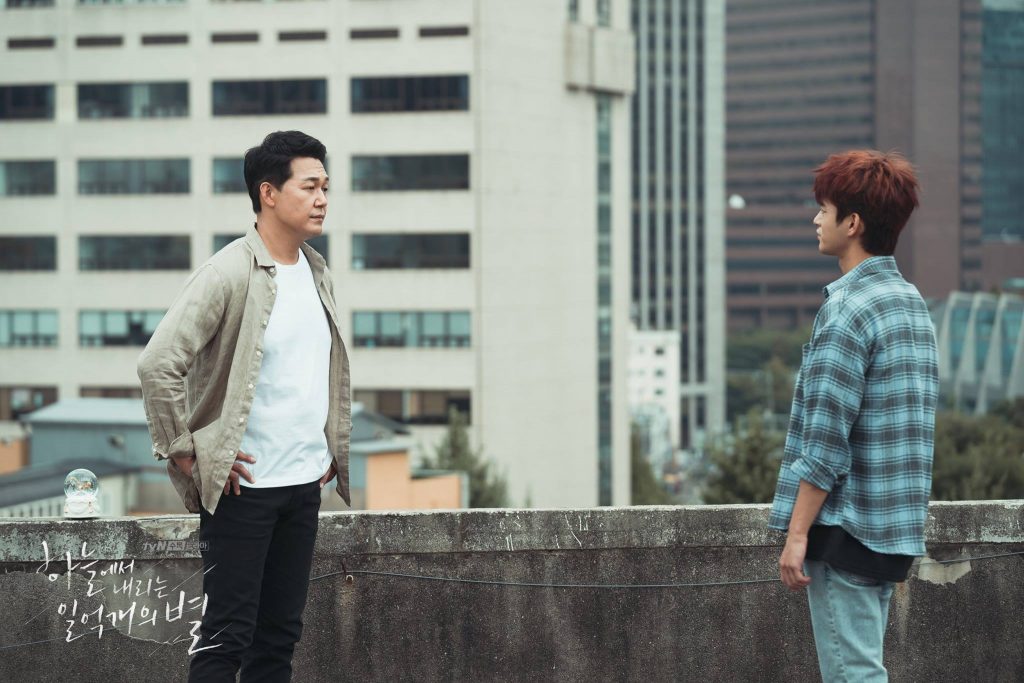
Other major developments are brushed aside shockingly easily by the main characters. Not long after Seung-a’s death, Moo-young and Jin-kang begin dating. Jin-kang shows few misgivings about their relationship despite the fact that her brother spells it out quite clearly that Moo-young’s selfishness and recklessness in his relationship with Seung-a is the reason she is dead. Later on, Jin-kang is shocked and upset upon learning that her brother has snapped and stabbed Moo-young on the street. Yet, despite an initial confrontation about it, this does not seem to destroy Jin-kook’s relationship with Jin-kang as it probably should, and they move on to more pressing plot points.
While many subplots, early mysteries, and necessary character developments unfortunately get left behind, glossed over, or mishandled, that doesn’t much matter once the action gets fully fleshed out in the ultimate mystery of Jin-kang’s real identity in the final episodes. The core trio of characters have such great energy together that it is easy to forgive some of the show’s faults, be it its weak secondary characters or logical hiccups. The many detailed twists and turns, the thoughtful themes, and the exceptional acting make The Smile Has Left Your Eyes a worthwhile watch.
(Korea Times, WebMD, Psychology Today, Psychiatric Times. Images via tvN. Dialogue translations via Viki.)


